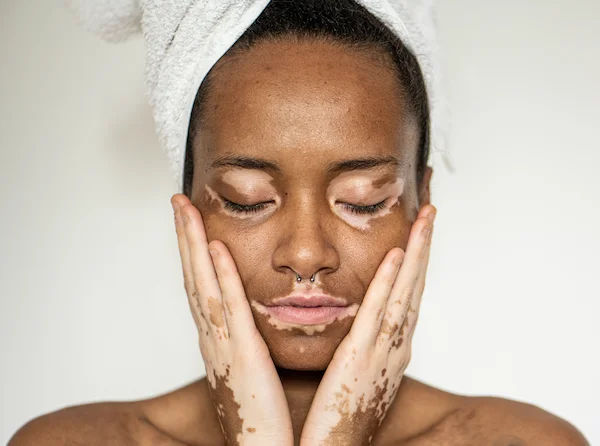Understanding Gaslighting and Its Effects
Learn what gaslighting is, how to recognize its signs, and how it affects mental health. Discover strategies to cope with emotional manipulation and regain self-trust.

Written by Dr. J T Hema Pratima
Reviewed by Dr. Dhankecha Mayank Dineshbhai MBBS
Last updated on 21st Aug, 2025

Gaslighting is a form of psychological manipulation where someone makes you doubt your own thoughts, feelings, and reality. It can happen in personal relationships, workplaces, or even within families. Over time, gaslighting can severely impact mental health, leading to anxiety, depression, and low self-esteem.
This article will help you understand what gaslighting is, how to recognize it, and ways to cope with its effects.
What Is Gaslighting?
Gaslighting is a subtle yet harmful tactic where a person (often someone close to you) makes you question your memory, perception, or sanity. The term comes from a 1938 play called Gas Light, where a husband manipulates his wife into believing she’s imagining things.
Common Examples of Gaslighting
- Denial of Reality: "That never happened. You’re making it up."
- Blaming You: "You’re too sensitive. You always overreact."
- Twisting Facts: "I never said that. You must have misunderstood."
- Minimizing Feelings: "You’re just being dramatic. It’s not a big deal."
Over time, victims of gaslighting may start doubting themselves, feeling confused, and losing confidence in their own judgment.
Signs You Might Be Experiencing Gaslighting
Gaslighting can be hard to recognize because it happens gradually. Here are some signs to watch for:
1. You Constantly Second-Guess Yourself
- You frequently wonder, "Am I overreacting?" or "Did I remember that wrong?"
2. You Feel Confused and Unsure
- The other person twists facts, making you question what’s real.
3. You Apologize Often
- You feel like everything is your fault, even when it’s not.
4. You Feel Isolated
- The gaslighter may isolate you from friends and family, making you rely only on them.
5. You Doubt Your Sanity
- You start believing you’re "crazy" or "too emotional."
If these signs feel familiar, you may be experiencing gaslighting.
How Gaslighting Affects Mental Health
Gaslighting doesn’t just cause temporary distress—it can have long-term effects on mental well-being, such as:
- Anxiety & Depression: Constant self-doubt can lead to chronic stress and sadness.
- Low Self-Esteem: You may start believing you’re incapable or unworthy.
- Difficulty Trusting Yourself: You struggle to make decisions without seeking validation.
- Emotional Exhaustion: The mental strain can leave you feeling drained.
If left unchecked, gaslighting can lead to serious emotional trauma.
Consult Top Psychologist
How to Deal with Gaslighting
If you suspect you’re being gaslit, here’s how you can protect yourself:
1. Trust Your Feelings
- Your emotions and memories are valid. Don’t let someone else convince you otherwise.
2. Keep a Journal
- Write down incidents where you feel manipulated. This helps you see patterns clearly.
3. Set Boundaries
- Limit interactions with the gaslighter. If possible, distance yourself from toxic relationships.
4. Seek Support
- Talk to trusted friends, family, or a therapist who can offer an outside perspective.
5. Practice Self-Care
- Engage in activities that boost your confidence, like meditation, exercise, or hobbies.
6. Consider Professional Help
- If gaslighting has deeply affected your mental health, therapy can help rebuild self-trust.
When to Seek Professional Help
If gaslighting has left you feeling helpless, anxious, or depressed, speaking to a mental health professional can make a big difference. Therapists can help you:
- Recognize manipulation tactics
- Rebuild self-esteem
- Develop coping strategies
At Apollo 24|7, you can easily book a consultation with a psychologist or counselor to discuss your concerns in a safe, confidential space.
Final Thoughts
Gaslighting is a serious form of emotional abuse that can leave lasting scars. Recognizing the signs early and taking steps to protect your mental health is crucial. Remember, your feelings and experiences are valid, don’t let anyone make you doubt yourself.
If you or someone you know is struggling with gaslighting, reach out for support. You don’t have to go through it alone.
Consult Top Psychologist
Consult Top Psychologist

Ms VISHAKHA RATHI
Psychologist
4 Years • MA (Psychology)
Delhi
REBUILDING MINDS (OPC) PRIVATE LIMITED, Delhi

Miss. Aaliya Syeda
Psychologist
4 Years • MSc Clinical Health Psychology UNIVERSITY OF STRATHCLYDE
Bengaluru
Apollo Clinic, Indiranagar, Bengaluru
Ms. Aleena Babu
Clinical Psychologist
5 Years • M.Sc Clinical Psychology
Bengaluru
Apollo Clinic, Sarjapur Road, Bengaluru

Ms. Moumita Ganguly
Psychologist
13 Years • B.ED(Special) Visual Impairment , PG.Diploma in Rehabilitation psychology
Kolkata
M’s Clinic, Kolkata
(125+ Patients)

Dr Rajan Kharb
Psychiatrist
9 Years • MBBS, MD psychiatry
Delhi
KPC Mind clinic, Delhi
(75+ Patients)
Consult Top Psychologist

Ms VISHAKHA RATHI
Psychologist
4 Years • MA (Psychology)
Delhi
REBUILDING MINDS (OPC) PRIVATE LIMITED, Delhi

Miss. Aaliya Syeda
Psychologist
4 Years • MSc Clinical Health Psychology UNIVERSITY OF STRATHCLYDE
Bengaluru
Apollo Clinic, Indiranagar, Bengaluru
Ms. Aleena Babu
Clinical Psychologist
5 Years • M.Sc Clinical Psychology
Bengaluru
Apollo Clinic, Sarjapur Road, Bengaluru

Ms. Moumita Ganguly
Psychologist
13 Years • B.ED(Special) Visual Impairment , PG.Diploma in Rehabilitation psychology
Kolkata
M’s Clinic, Kolkata
(125+ Patients)

Dr Rajan Kharb
Psychiatrist
9 Years • MBBS, MD psychiatry
Delhi
KPC Mind clinic, Delhi
(75+ Patients)


.webp)

